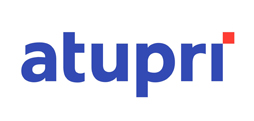From a money-saving point of view, the cheaper the compulsory health insurance premiums, the better. The coverage provided by Swiss compulsory health insurance is legally defined and all policies must provide the same coverage.
Because compulsory health insurance premiums change every year but coverage remains identical, the customer migration rate in the Swiss health insurance sector is relatively high. The price of policies is the primary determining factor. Residents often change health insurance policies after premiums for the coming year are announced in order to benefit from lower premiums.
Comparing compulsory health insurance premiums ahead of each new year is highly recommended. Taking the time to compare and to change providers when a cheaper policy is available can save you a lot of money. Unlike comparing supplementary health insurance policies which each provide different benefits and coverage, comparing compulsory health insurance policies is easy the only major difference is found in the premiums charged.
Compulsory health insurance premiums vary based on deductibles, managed care models, accident coverage, age and place of residence. Each of these criteria plays a role in determining which policy is the most affordable for you. The interactive compulsory health insurance comparison tool on moneyland.ch accounts for all possible variables.
Advantages of budget health insurance providers
Budget health insurance providers are insurers which consistently charge low premiums across multiple insurance models, cantons and age groups. The differences in premiums charged by budget insurers in relation to premiums charged for the most expensive policies can easily come to 1000 Swiss francs per person and year, as shown by the unbiased health insurance comparison on moneyland.ch. Those savings are the primary benefit offered by budget insurers.
Disadvantages of budget health insurance providers
Doctors, politicians and consumer watchdogs deliberately refer to budget health insurance providers as cheap – rather than affordable – to make consumers aware of the disadvantages of budget health insurance.
The following disadvantages are frequently cited:
- Delayed reimbursement of medical expenses: A common complaint is that budget insurance providers take exceptionally long to settle claims when indirect claims settlement (tiers garant) is used. This can be problematic for patients because they may have to wait for weeks or even months before having their medical expenses reimbursed.
- Differences in coverage: According to Swiss law, the coverage provided by Swiss compulsory health insurance should be identical regardless of which insurance providers issues the policy. However, as with all laws, the compulsory health insurance law has its gray areas. These gray areas are frequently leveraged by insurance providers to the detriment of policyholders. Denial of coverage for medicines which are not on official pharmaceutical lists, such as expensive cancer treatments, is one example of this. Some insurance providers cover these medicines, but budget health insurance providers often initially refuse or delay payment of claims. In some cases, intervention by doctors on behalf of patients is required for successful claims.
- More work for doctors: Doctors, for their part, increasingly complain about administrative work related to health insurance – particularly in relation to budget insurance providers. Some medical professionals require guarantees of payment by patients’ insurance providers before performing certain treatments. This is normally just a formality, but budget insurance providers often complicate the process and require doctors to provide additional information before they guarantee payment.
- Insufficient customer service: Whether or not policyholders appreciate their customer experience has a lot to do with the specific insurance representatives which they deal with, but company culture also plays a significant role. Budget insurance providers often cut costs by cutting down on customer service.
- Targeting healthy individuals: A common allegation made against budget insurance providers is that they target young, healthy individuals in their marketing campaigns. Insurance providers prefer healthy policyholders because they do not present a significant financial risk. Individuals with poor health, on the other hand, are considered a bad risk because they are likely to cost the insurer more than they pay in premiums. Because of this, some insurance providers deliberately market their policies to young adults. This is often done through online channels. Individuals who are looking for high-deductible insurance are also targeted because unhealthy individuals are more likely to take out health insurance policies with low deductibles.
- Rejecting high-risk applicants: Budget insurance providers are regularly the target of allegations related to rejecting high-risk applicants. All insurance providers are obligated by law to provide compulsory health insurance to all applicants who are resident in Switzerland without exceptions. However, high-risk consumers regularly complain about health insurance providers using avoidance tactics to prevent them from successfully applying for policies on time.
Budget insurance – is it a good choice?
From a strictly financial point of view, paying the lowest possible premiums for compulsory health insurance is generally a good move. However, individuals who are suffering from health conditions should consider the claim settlement policies and customer service provided by insurers.
The budget health insurance provider Assura has consistently charged the lowest average premiums, and it continues to be one of the most affordable insurers. However, Assura is also the insurance company which is most frequently cited by doctors as a negative example of a budget health insurance provider.
It is interesting to note that major Swiss health insurance providers like CSS run budget health insurance subsidiaries which charge lower premiums than their parent companies. Arcosana, for example, is a budget subsidiary of CSS. Many of the complaints and allegations against stand-alone budget health insurance providers do not apply to these subsidiaries. Customer service, for example, is identical across major health insurers and their budget subsidiaries. A single billing desk generally handles premiums for parent and subsidiary insurers. Many subsidiaries use the same branding as their parent companies.
Policyholders who are content with their current insurance provider and want to continue receiving the same level of service can consider switching to a budget subsidiary of the same company to save on premiums. This can normally be done without losing possible multiple-policy discounts for holding compulsory and supplemental health insurance policies from the same provider because they remain insured by the same insurer.
Individuals who are looking to move to a budget health insurance provider should consider whether or not prospective insurers are backed by larger insurance providers with strong customer satisfaction ratings. Customer satisfaction ratings are clearly broken down in the moneyland.ch compulsory health insurance comparison.
More on this topic:
Compulsory health insurance comparison
Supplemental health insurance comparison
Supplemental hospital insurance comparison

 Deal of the Day
Deal of the Day 









